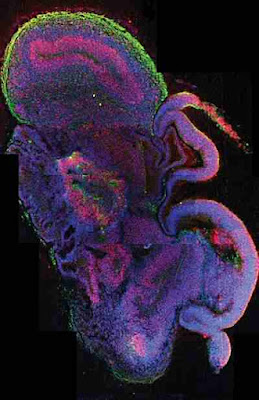Scientists are creating tiny human organs from stem cells just for the sake of it. They hope that it will make for beneficial discoveries and applications in the future. Is it a waste of public and private money? It could be. There is an opportunity cost in using resources for wasteful projects.
These tiny but useless mini-organs are called organoids. Indeed, Madeline Lancaster was messing-around" when she realized that she had grown a brain. Attempting to form embryonic stem cells from neural rosettes she accidentally succeeded. The floating milky substance floating in the culture was an embryonic brain - retina cells. A mass of different cells were found when the contents of the culture dish were closely analysed.
Organoids seem to mimic the operation of full-sized natural organs. Eye, stomach, gut, kidney, liver, pancreas, lung, prostate and breast mini-organs have been made. They do mimic some of the functions of the real thing. Unfortunately, they remain embryonic and do not keep growing to become actual copies human organs.
It seems organoids form on their own with no structural scaffolding required for them to make operational structures. Cell division simply follows the instruction written in the DNA. Their only use so far has been for testing of drugs and procedures to treat medical conditions. It is a developing science - early days.
♣
◆ Biology by Ty Buchanan ◆
●




